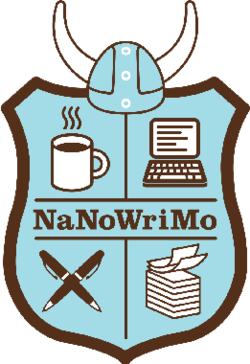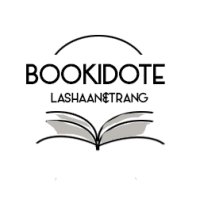Richard Harris's Blog, page 11
November 11, 2017
10 Literary Blogs You Should Be Reading
Umm…apparently I didn’t get the memo about applying to be on this list. Must be my freaking fax machine and telex network, both of which are on the Fridolin Fritz and causing me so many problems these days!
Anywho, according to JW McCormack over at theculturetrip.com, these are the “10 Literary Blogs You Should Be Reading.” Thank you to EJK for sending this link over my way. In alphabetical order, the 10 sites are:
The Awl
Electric Literature
Guernica
Hazlitt
Literary Hub
The Millions
MobyLives
The New Inquiry
Page-Turner
The Quarterly Conversation


Stress & Language (Or Words to Avoid for Writers)
According to Lindsay Dodgson, “Using any of these words could indicate that you are more stressed.”
Stress, of course, is not a funny thing. However, what’s funny about this list of words is that it’s a real what’s what! for budding writers to avoid.
In a beautifully shaped nutshell:
A new study has identify words linked to high stress levels.
It found that “really,” “so,” and “very” can be giveaway signs.
Researchers determined stress by examining white blood cells.
They believe listening to medical patients’ vocabulary could let doctors give more accurate diagnoses.
Or, to paraphrase a little-known writer, last name King, first name Steve Baby, “Stay the **** away from adverbs like they’ve got a raging case of ***ing face herpes and toe jam.”
Further to that, and per Ms. Dodgson’s article, paraphrased:
If someone is stressed, they tend to talk less, but they also use more adverbs like “really,” and “incredibly.” According to Matthias Mehl, a psychologist at the University of Arizona and lead author of a study on this subject reported to the scientific journal Nature, these words may act as “emotional intensifiers,” suggesting the speaker is more “aroused,” meaning excited or alert.
Now, of course, the other funny thing is that I think we already knew that, not by the adverbs, but by the colourful language most of us display when we’re stressed out. For example, consider the following dialogues and check (O) for “stressed out” or (X) for “cool as a head of napa cabbage kimchi”:
1. A: How’s it going?
B: Well, I just got ****ing fired from my *%$&* job at Pet Smart for mistakenly feeding the birds to the cats this morning, and came home to an eviction notice from my ***hat super.
2. A: Sorry to hear about your exams. You really shat the bed, huh? Fully parked a trout on those bad boys. I guess that’s four years down the drain.
B: No, no. It’s all good. I look at it as money well spent on supporting our economy. Go Falcons!
3. A: Hey, did you just shave?
B: Nope. Raging case of face herpes, I’m afraid. Gonna $%&^* kill the guy at work who thought it was funny to lick my face this morning ’cause I smelled so $%&*ing good.


In Flanders Fields
In Flanders Fields
In Flanders fields the poppies blow
Between the crosses, row on row,
That mark our place, and in the sky,
The larks, still bravely singing, fly,
Scarce heard amid the guns below.
We are the dead; short days ago
We lived, felt dawn, saw sunset glow,
Loved and were loved, and now we lie
In Flanders fields.
Take up our quarrel with the foe!
To you from failing hands we throw
The torch; be yours to hold it high!
If ye break faith with us who die
We shall not sleep, though poppies grow
In Flanders fields
John McCrae, 1872 – 1918
Lest we forget, this remains one of the most important and poignant poems.
Today, November 11, 2017, marks the 99th anniversary of the end of World War I, the Great War – the War to End All Wars – and is being observed in all member states in the Commonwealth of Nations as Remembrance Day (Veterans Day in the U.S.).
This poem is especially close to the hearts of all Canadians, as it was a Canadian, Lieutenant Colonel John McCrae, MD, who penned these words while treating the sick and wounded in Europe during WW I.
Lt. Col. McCrae never made it home, though. He died of pneumonia in 1918, 10 months shy of the end of the war. Although his poem has endured – nay, blossomed – since then, he never bore witness to what transpired at the eleventh hour of the eleventh day of the eleventh month in 1918; it was at 11 a.m. on November 11, 1918, in the Forest of Compiegne, France, when the Armistice to end World War I signed between the Allies and Germany went into effect.
Elsewhere throughout Europe, church bells rang. It was over.


November 10, 2017
Quote of the Day
“Pain demands that I pay attention to it, then tells me random things very loudly. Like a natural process it resists prediction and administration. It can run away with itself. It changes without notice or evident pattern. Pain keeps its secrets. It is like nature that way, like the weather and the ecosystem, economies, earthquakes, rivers, public policy. Pain never lets you simplify complexity. It is the ecosystem of me, in stochastic rebellion against the cognitive me. The disease might kill you or not, but to be sure self-pity will kill you if you let it go unchecked. There’s no avoiding self-pity, there’s no one who is perfectly capable of never falling into it. It is pain’s most dangerous traveling companion. Pain may hold on to you, but it’s self-pity that eats you alive.”
Quinn Norton, “Learning From Pain: On living a continuously interrupted life“
Most times I link the Quote of the Day to someone famous that we should have all read by now, but once in a while I come across something from an everyday person like you and me that is well written and resonates through my laptop screen with reverberation-like resonance.
Today’s quotation is one such shining example. Ms. Norton has a specific angle that she’s coming from, she knows of what she speaks, and she has put together a thoroughly informative, touching, and eye-opening piece about a universal subject.


Twitter –> Brevity = New Vocab. & 다른 언어 사용
Three guys who’ve never been in my kitchen AND know brevity real good!
While not quite as immediately helpful as the piece by Rachel Thompson on “How to start using hashtags effectively right now,” Josh Wilburne still wants to get Twittery on your ***. Seriously, he even said so. Mr. Wilburne works for that little-cable-car-that-could in San Francisco called @twitter, and has an informative piece to read over titled “Looking After Number One-forty: Solving a number of design challenges.”
It’s interesting in ways that people who like Twitter will find interesting.
For me, I found it more empowering that Mr. Wilburne has inadvertently proven that Korean is the greatest language. Ever. In the history of the world. Stamped it. No erasies.
Like Japanese, Korean is compact enough to squeeze a massively massive boatload of thoughts/information into very few characters. Unlike Japanese, however, the Koreans created their script, Hangul (한글: see, six letters vs. two characters), from scratch, making it the only extant written language that was invented!
Therefore, Korean is now the official language of Twitter.
P.S. For anyone curious about the word “brevity,” you could look it up in the dictionary, but you’ll see pretty much the same thing as below. The example they use at dictionary.com about compacting your language like a trash compactor (remember those?) is so amazing that my slight tweest on it practically wrote itself.
brevity
[brev-i-tee]
noun
2. the quality of expressing much in few words; terseness:
“Ironically, it is long-winded Polonius in Shakespeare’s Hamlet who famously says that brevity is the soul of (t)wit(ter).”


November 9, 2017
November: National Novel Writing Month
Yep. If you haven’t stated yet, crack out your quills, attach your feather to a tether, and get writing! The month of November is National Novel Writing Month – subtitle “The world needs your novel.” – or NaNoWriMo for short. (And by “National” they mean “International.”)
Per the blog at IngramSpark, understandably a big supporter of the event:
“In July of 1999 a small group of would-be-authors had the novel idea of each trying to write their own book. They lovingly called it “noveling.” What they didn’t know, was they were laying the foundation for what would soon become one of the world’s most widely participated mass-writing events.
NaNoWriMo was established in 2005 as a nonprofit built on the belief that everyone has a story inside. To motivate people to embrace their creativity and bring their stories to life, NaNoWriMo challenges participants to write a 50,000-word novel during the month of November.
While the challenge gives NaNoWriMo a fun and untraditional twist to noveling, the real purpose behind the month-long event is to support and inspire those around the world to share their voice. NaNoWriMo, along with its subprograms (Camp NaNoWriMo, Young Writers Program, Come Write In, and “Now What” Months) champion the power of the human mind to make the world a better place.”


A Literary Blog of Bookies, by Bookies, for Bookies
I like sharing. It warms the cockles of my heart. Which makes me feel warm, a little fuzzy, and somewhat sexy mild. Thus and therefore, let me share a bookish site for all your hardcore bookies out there.
For those interested in keeping up to date with reviews of books new and old, I’ve come across a blog I think is great called Bookidote.
Per the two webmasters who are masters of their own bookish domain:
Bookidote (\ˈboo-ki-ˌdōt\) : Lashaan and Trang’s creation. It is a commitment that holds countless ideas in one word. Three syllables. Nine letters. These two squandered souls firmly believe that books aren’t just a pastime for intellectuals or a mandatory purchase for your studies. Bookidote is much more. It marries books with antidotes, knowledge with cure, imagination with elixir. It refers to the ability that books withhold in swallowing you into a universe and encouraging you to live a unique and different adventure every time you crack open a book. Bookidote acknowledges the fact that books can help you explore ideas, stimulate your imagination and live innumerable lives.
Go check out these two phat cats if you’re looking for something to read or simply learn more about them and their emporium of literary wonders.


November 8, 2017
Quote of the Day
“Male fantasies, male fantasies, is everything run by male fantasies? Up on a pedestal or down on your knees, it’s all a male fantasy: that you’re strong enough to take what they dish out, or else too weak to do anything about it. Even pretending you aren’t catering to male fantasies is a male fantasy: pretending you’re unseen, pretending you have a life of your own, that you can wash your feet and comb your hair unconscious of the ever-present watcher peering through the keyhole, peering through the keyhole in your own head, if nowhere else. You are a woman with a man inside watching a woman. You are your own voyeur.”
― Margaret Atwood, The Robber Bride
What’s interesting for me is that I remember The Robber Bride as the only Margaret Atwood book I’ve read which made me laugh out loud throughout the novel, but when going over it again today I forgot how heavy some of the writing is from the story.
While a new generation of readers has been introduced to Ms. Atwood – or “Canada’s unrivaled Queen of Letters,” as Eleanor Wachtel once called her – through the recent made-for-TV remake of The Handmaid’s Tale, those of us a bit older know that she has a canon of literature long enough, broad enough, and circumspect enough to shelve an entire library.
I may not have read all of her books, but I highly recomend The Robber Bride, a story that was insired by a Brothers Grimm tale, “[b]ut in her version, Atwood brilliantly recasts the monster as Zenia, a villainess of demonic proportions, and sets her loose in the lives of three friends, Tony, Charis, and Roz.”


Mental Health Alert: Christmas Music
This is frickin’ you on Xmas music for 55 days straight. (P.S. Thanks, Andy!)
I effin’ love IFLScience. In a piece titled “Christmas Music Could Harm Your Mental Health,” the good folks there explain why Christmas music can screw us up. Like, screw us up bad to quite bad.
Now, can someone please pass this memo on to stores that insist on playing the stuff 24/7 from November 1 onwards?


“Evil has a blockbuster audience, while goodness lurks backstage.”
Similar to yesterday’s Quote of the Day, the above statement from Toni Morrison – Pulitzer Prize-winning author, Nobel Laureate and Presidential Medal of Freedom recipient – hit home with me in a visceral way. If Chuck Palahniuk was asking, How come pain and tragedy leave such indelible scars when happiness seems to float by us without as much as a nick on our thick skins? then Ms. Morrison, in a talk delivered to Harvard Divinity School as part of the school’s 2012 Ingersoll Lecture on Immortality, asked, Is altruism an instinctive act of selflessness, or is it taught and learned?
She was pondering this question after one of the most horrific gun-related events in recent memory. (The fact that I have to qualify that as “recent memory” is telling in and of itself.) On October 2, 2006, a lone gunman, Charles Carl Roberts IV, walked into an Amish one-room schoolhouse, took hostages and shot eight out of ten girls (aged 6–13), killing five, before committing suicide in the schoolhouse. It would hereafter be referred to as the West Nickle Mines School shooting.
As with every other mass shooting in the United States, it seems, the initial news centered around gun laws and how nothing would change. But then something extraordinary happened, giving Toni Morrison – and the rest of the world – pause: the small Amish community of Nickel Mines, Pennsylvania reached out to help heal the wounds not just of the fallen and injured; they reached out to the family of Mr. Roberts. Attempting to understand this mind-boggling behaviour, Ms. Morrison would say the following in her HDS talk:
“ [The community’s] silence following that slaughter, along with their very deep and sincere concern for the killer’s family, seemed to me at the time characteristic of genuine goodness – and so I became fascinated even then with the term and its definition. I wondered why the narrative quickly ignored the killer and the victims and focused exclusively on the shock of forgiveness.”
This led her to examine a host of questions many of us have asked at one point or another in our lives: Are we inherently good as human beings? Or is selfishness a disguised form of narcissism?
That’s when Ms. Morrison turned to – you guessed it – books (and science) for the answers:
“Some of the most thought-provoking theories came from scholarship investigating the DNA – scientists seeking evidence of an embedded gene, automatically firing to enable the sacrifice of oneself for the benefit of others. It was a brother or sister to Darwin’s survival of the fittest.”
She went on to use the arts as a metaphor, and one that I think is particularly apt not only in this day and age, but especially in the wake of what recently transpired at a Texas church. As she herself put it so eloquently:
“I’ve never been interested or impressed by evil itself. But I have been confounded by how attractive it is to others, and stunned by the attention given to its every whisper, its every shout. Evil has a blockbuster audience, while goodness lurks backstage.”
Perhaps it is precisely at times like right now that we should be considering these God-sized questions and exploring other avenues besides pointless rhetoric that infuriates everyone. Or, as the towering figure of American Letters said so much more memorably:
“Allowing goodness its own speech does not annihilate evil. But it does allow me to signify my own understanding of goodness. The acquisition of self-knowledge – a satisfactory ending for me – is when the protagonist has learned something vital and morally insightful about the killer that she or he did not know at the beginning.”















